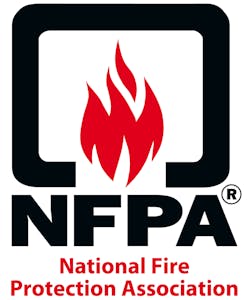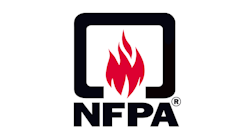NFPA, ESFI Stress Importance of Electrical Safety Month
Flipping a light switch. Plugging in a coffeemaker. Charging a laptop or iPhone. These actions are second nature for most of us. Electricity makes our lives easier, but its potential for shock and fire-related hazards are often taken for granted. That is why the National Fire Protection Association (NFPA) actively supports National Electrical Safety Month, an annual campaign sponsored by Electrical Safety Foundation International (ESFI), which raises awareness of potential home electrical hazards and the importance of electrical fire safety, each May.
“Computers, kitchen appliances, heaters, fans, air conditioners – any equipment powered by electricity has the potential to be involved in an electrical fire,” said Lorraine Carli, NFPA’s vice president of Outreach and Advocacy. “The good news is, people can take simple steps to greatly reduce electrical hazards like learning the proper way to plug in appliances, safeguarding electrical outlets in the home, and more.”
According to a recent NFPA report, U.S. Home Structure Fires, during 2011 – 2015 electrical distribution or lighting equipment was involved in the ignition of 34,000 reported home structure fires, on average, per year. These fires involved equipment such as wiring, lighting, cords and plugs. The report also states that electrical distribution or lighting equipment ranked first in direct property damage and third among the major fire causes in the number of home fires.
To help address this issue, NFPA and ESFI ask residents to adhere to the following safety tips:
- Check electrical cords to make sure they are not running across doorways or under carpets where they can get damaged.
- Have a qualified electrician add more receptacle outlets in your home to reduce the use of extension cords.
- Use light bulbs that match the recommended wattage in a lamp or other light fixture. Check the sticker on the lamp to determine the maximum wattage light bulb to use.
VIDEO: NFPA helps Dan Doofus get grounded in the basics of electrical safety.
Residents should also have all electrical work done by a qualified electrician, including scheduling electrical inspections when buying or remodeling a home. In addition, residents should call a qualified electrician or landlord when encountering the following warning signs in a house or apartment:
- Frequent problems with blowing fuses or tripping circuit breakers
- A tingling feeling when touching an electrical appliance
- Discolored or warm wall outlets
- A burning or rubbery smell coming from an appliance
- Flickering or dimming lights
- Sparks from an outlet
“The National Electrical Code® is updated every three years to include the latest in proven safety technology, and ESFI is committed to educating the public about the importance of upgrading to stay up to code,” said ESFI President Brett Brenner. “To prevent electrical fires and electric shock at home, have your house inspected annually by a qualified electrician.”
For additional tips and resources including infographics, fact sheets, and videos about electrical fire safety, visit NFPA’s electrical safety webpage.
For this release and other announcements about NFPA initiatives, research and resources, please visit the NFPA press room.
About ESFI The Electrical Safety Foundation International (ESFI) sponsors National Electrical Safety Month each May to increase public awareness of the electrical hazards around us at home, work, school, and play. ESFI is a 501(c)(3) non-profit organization dedicated exclusively to promoting electrical safety. For more information about ESFI and electrical safety, visit www.esfi.org.
About the National Fire Protection Association (NFPA) Founded in 1896, NFPA is a global, nonprofit organization devoted to eliminating death, injury, property and economic loss due to fire, electrical and related hazards. The association delivers information and knowledge through more than 300 consensus codes and standards, research, training, education, outreach and advocacy; and by partnering with others who share an interest in furthering the NFPA mission. For more information visit www.nfpa.org. All NFPA codes and standards can be viewed online for free at www.nfpa.org/freeaccess.







